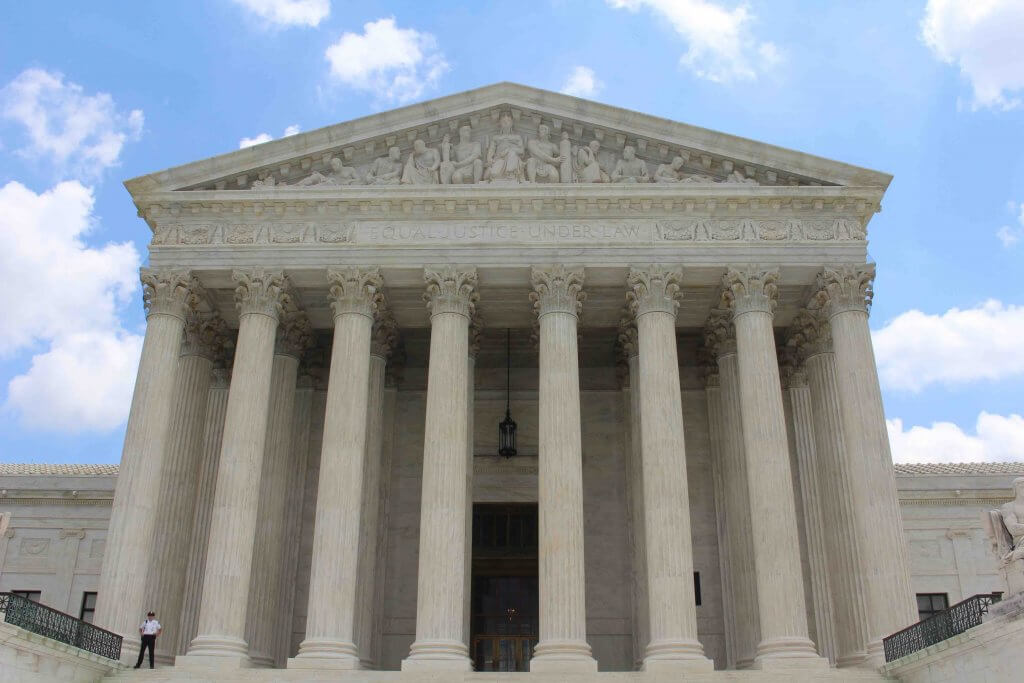Is the “Lemon Test” for Religious Law still Relevant after Kennedy v. Bremerton School District?
April 21st, 2023

The First Amendment is clear when it comes to religion, and there are two provisions that cover the intersection between religion and free speech. The first is the Free Exercise Clause, and the second is the Establishment Clause. But while the wording is clear, the decision of whether to apply these provisions to any given situation is often a little tricky. This is why the courts fall back on something called the “Lemon Test.” But what exactly is the Lemon Test, and why is it such an important part of US law?
The Roots of the Lemon Test
The Lemon Test stems from a US Supreme Court case: Lemon v. Kurtzman. In 1971, the Supreme Court ruled that the Nonpublic Elementary and Secondary Education Act in Pennsylvania was unconstitutional. Why? Because the act allowed the state to reimburse private Catholic schools for teacher salaries while they were using public textbooks and public instructional materials. This constituted a violation of the Establishment Clause, which effectively makes it illegal for the United States to have a “state religion.”
What is the Lemon Test?
The Lemon test helps courts decide whether legislation involving religion is constitutional.
The Lemon Test has three different factors:
- The statute must have a secular legislative purpose
- The main effect of the statute cannot benefit or inhibit religion
- The statute cannot create “excessive government entanglement” with religion. To further satisfy this requirement, courts may consider the following questions:
- What kind of institution benefits?
- What kind of benefit is provided?
- How does this change the relationship between government and religious organizations?
If all of these requirements are met, the legislation is considered constitutional.
Is the Lemon Test Still Relevant?
Last year, the Supreme Court essentially overturned Lemon vs. Kurtzman and the Lemon Test in a new case: Kennedy v. Bremerton School District. This case revolved around a high school football coach who insisted on praying with his players at the 50-yard-line after every game. He was eventually fired from his job as a result, causing him to sue in federal court. When the case reached the Supreme Court, it found that the Establishment Clause does not allow the government to take punitive action against someone who expresses their religious beliefs, even in a public school setting.
This new case means that the Free Speech and Free Exercise Clauses do not allow the government to fire the coach, and it effectively went against the Lemon Test. While Gorsuch’s ruling technically means that the Lemon Test is still valid, he instructed lower courts to disregard the test and use a different standard, but only for religious legislation involving public schools. The Supreme Court wrote that:
“In place of Lemon and the endorsement test, this Court has instructed that the Establishment Clause must be interpreted by “‘reference to historical practices and understandings. “‘[T]he line'” that courts and governments “must draw between the permissible and the impermissible” has to “‘accor[d] with history and faithfully reflec[t] the understanding of the Founding Fathers.'”
Response to the Supreme Court Decision
Conservative groups such as The Heritage Foundation and the Alliance Defending Freedom hailed the decision as a victory for religious freedom. Groups such as the American Civil Liberties Union commented that the decision “significantly erodes the separation of church and state in public schools” and “tramples the religious freedom of students who may not share the preferred faith of their coaches and teachers.” Indeed, the original Lemon vs. Kurtzman decision was decided 8-1, but with the new supermajority of religious conservatives on the Supreme Court, many previous rulings and established principles are up for debate and reconsideration so as to more align with the values of the current majority.
The Goal of the Universal Life Church’s Blog
Each week, the Universal Life Church’s blog focuses on documenting the most noteworthy cases involving the required separation between church and state. Despite required Constitutional separation, many fear that the Supreme Court’s current majority could erode these constitutional safeguards. Our blog focuses on describing matters in a way that objectively examines both sides and which can be easily understood by readers.


